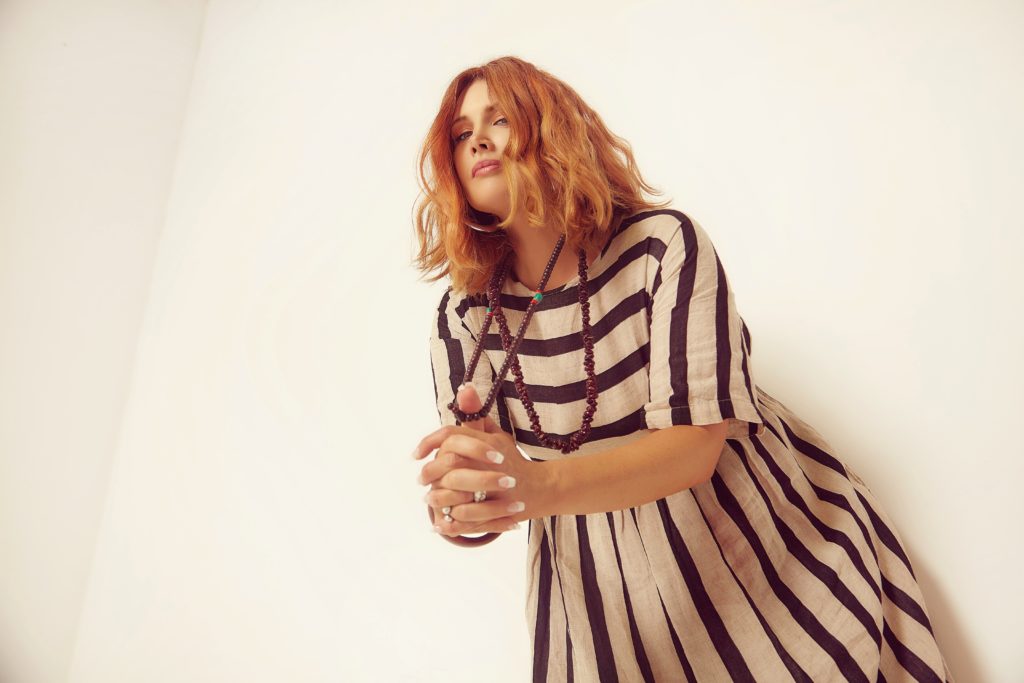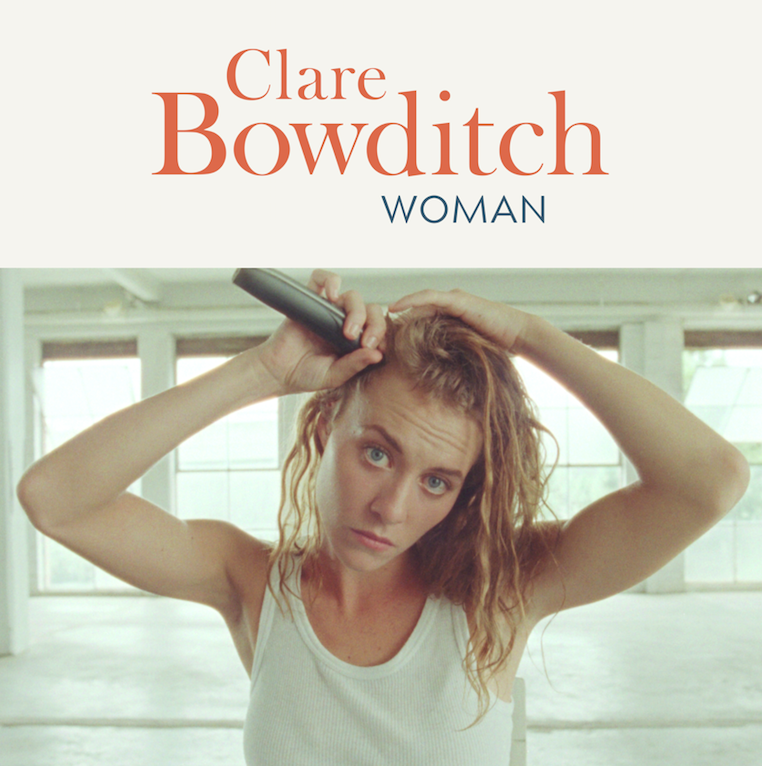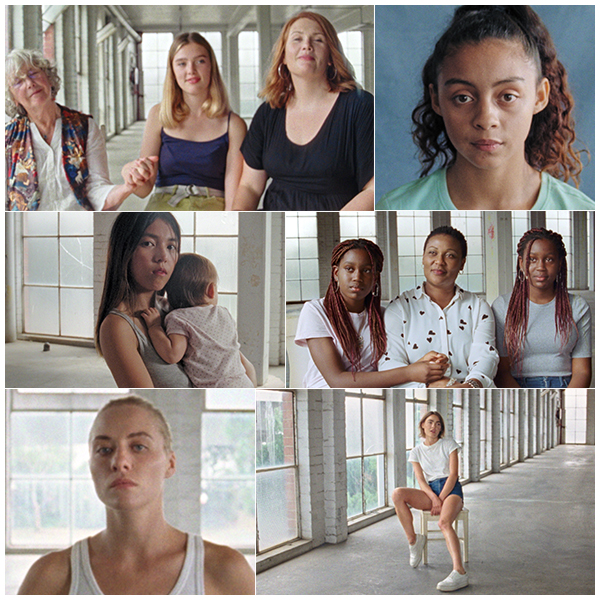Interview: Clare Bowditch ‘Woman’
Clare Bowditch pays tribute to International Women’s Day in her latest single ‘Woman’. The track celebrates female strength whilst challenging stereotypes. Accompanying the track is a gripping video featuring representation of all women and paying homage to the diverse women that construct our society.
Clare Bowditch delivers a message that is as personal as it is empowering. We chat about women and our role in shaping the world.

A1on1: I wanted to get straight into talking about ‘Woman’. It serves as your return to the music scene and is quite different in terms of content and subject matter to previous work.
Can you talk about how the writing process took form?
CB: Absolutely! This is a song from what will be my eighth album. Each of my albums has a theme. ‘Modern Day Addiction’ was about our brain, the role stories play in our life, and grief and living with the legacy of loving someone you lose. This album is really about truth-telling and stories from the messy middle.
The context of this story; it was written in 2015, it was written in one night after I’d been with my galpals. We’d gone out for a cheeky Tuesday night, school night drink. I really needed them that night. The anxiety was high in my chest with all the things that I wasn’t that I thought I should be by now, and all the usual stresses and strains of trying to keep showing up in your own life. I recognised that night, really clearly that we were all in the same boat when we could be honest with each other and talk about the messy stuff. We felt more normal and we felt braver. I realised that I could be really brave on the other half and I sometimes struggled to do that with myself.
When I went home that night, the song that was running in my head was ‘we spend our whole lives trying to fit in, trying to get thin…for who?’ Why are we wasting our time on these things? I feel guilty about them and I’m going to keep going anyway, even though I’m imperfect. I’m going to write something that can be an anthem to our next courageous act.
Because they are abstract, yet simple thoughts, do you always need to voice your thoughts as words before they become lyrics?
Every song presents itself as it wants to. It’s like a child; it pops out and I can’t dictate its gender, its personality and all the rest of it. This one came as first of all as a really strong riff. In the past, it’s usually a little bit like an itch. There’s something that needs to be born or said or rushed out and then, that’s where we get a song from. It’s still quite mysterious to me.

I wanted to talk about vocalising your thoughts in relation to your confidence. How did growing up and diving into other endeavours give you the realisation that it’s time to celebrate women now?
I think it’s really been my whole entire career. It’s been accompanied by my first song ‘Divorcee by 23’ and telling a woman to ‘step on out of line’. To step outside what people expect from you. My other songs around ‘Modern Day Addiction’ and ‘The Start of War’ are speaking about that internal war. Really, what I’m always looking to is sensitive energy in us.
I’m a woman and I write from the perspective of a woman, but my songs and my audiences have always been full of people who feel heard when they hear songs like mine, and feel like I’m on their team. That’s what I’m there [for], to inspire. And on the question of confidence, the reason I perhaps present as quite confident in the world is because it’s been such a terrific struggle for me, my whole life to try and find places where I felt that I fit.
I felt that I always had too many emotions and too many feelings and too much pain. Too messy and too many hopes. On top of that, I’ve always been a curvy girl from the moment I was born and that compounded, and has been soothed by my songwriting and the reaction my songs get in the world.
Do you think prejudice against you hasn’t been limited to just career wise?
I don’t carry other people’s prejudices [of me]. I don’t gossip and I don’t have any regard for people’s opinions of me who are not in the arena with me. That’s a famous Teddy Roosevelt quote, which is ‘it is not the critic who counts’. Brené Brown has popularised that lately and it’s wonderful to have that quote back in circulation.
Here’s the truth, the way that we oppress ourselves with the stories we tell ourselves about how we need to fit in, we didn’t just make them up. We’ve picked them up by having a brain that wants to survive, and we’re smart. As kids, we realise the best way to survive is to fit in. The trick of adulthood and maturity is understanding that regardless of our circumstances, we always have the ability to tell ourselves a different story.
If I waste my life worrying about what I can’t do, I waste my life full stop. We don’t pretend that prejudice doesn’t exist. What I’m saying that I’m in a privileged position of having a voice to speak to that prejudice. I hope that makes sense.
It’s special that you build a strength and disregard people’s prejudice. How have you then instilled that in your own daughter throughout her womanhood?
One of the most difficult things about being a parent is that I do not get to dictate what messages my kids get in this world. I don’t get to. Unless I live in a cave in a mountain and we catch all our own food. We live as a part of society. The only thing I can do is keep writing songs like this, keep speaking up on behalf of my hope that my daughters and my sons get equal opportunities. That’s how I do it publicly.
Privately, this song starts with the message of ‘I used to think it was just me, worrying about how to write a bigger story for my girl’. My story of becoming a mother is my origin story of becoming a musician. I wrote songs from the age of three, I sung in bands from the age of sixteen, but it wasn’t until I was 26 and I found out that I was going to be a mother that I started to take my music seriously. [I] realise that all I can do is keep reminding my daughter that irrespective of how the world may or may not, advertently or inadvertently count her out, it is her job to keep counting herself in.
Just setting a good example?
Exactly. I adore her and like all mothers throughout the world, I do everything I can to remind her that she’s not here to please other people. She’s here to live her life. I think back to myself at that age, I had women telling me that as well, but I didn’t get that until later. You never know what they’re hearing or not hearing, but my job is to give her enough honesty that she’ll be able to talk back to the world when it tells her who she’s supposed to be.
Clare entrusted director Lucy Knox with the responsibility of epitomising the substance within the song through visuals. The video captures the full scope of females in our society, and puts forward the notion of equality and fortitude amongst all women.
You included the three generations of women in your family in the music video. How was your daughter’s reaction to being included?
It was myself, my mum and my daughter! She was very generous. On the day of the shoot, there were all these wonderful women there. She recognised a couple of them, there were a couple of famous women there and women who were friends of hers at school who coincidentally turned up on the day as well.
I think both my mother and my daughter were very generous in showing up on the day. It was the filmmaker Lucy Knox’s idea. I said to her, ‘I don’t need to be in the clip at all, you’ve got so many great stories here’, and she said ‘there’s this one shot I want to get. I want to get the three of you’, so I said okay.
Did you get to hear the stories of all the diverse females at the shoot?
I did! And not nearly enough. We didn’t get enough time together, only a day. We had old friends of Lucy’s. It was really Lucy Knox and her team who put it all together. In that group were women that Lucy had met at the airport the week before, caught a plane with and sat next to. Her sister Bambi was in the clip as well. It was her other subjects from other films, and their friends and families and their grandmothers. It was women unapologetically showing us who they are. It’s amazing that we don’t see more of that.
And speaking of unapologetically who they are, it was great to see them at their most bare, aesthetically and also in their actions. It showed a gentleness and beautiful poise.
Why were you open to portraying it this way?
This video was very much Lucy’s vision, to the point where it was filmed on film, which is extremely rare. That was the beauty of the rendering. There was an extraordinary cinematographer who was part of the crew as well. It was a mostly female crew which is highly unusual. All of this was Lucy’s vision. She drove those film cannisters in her own car from Melbourne to Sydney to make sure they were developed correctly. She took this on.
There’s a certain grace in the way the vision was presented to me and I just felt that, in an era where we’re tempted to think this conversation is a saturated [one], we have to keep reminding ourselves that it’s actually not. We’re just beginning to see the face of the power of this conversation. We’re only just beginning to see the tip of it. If we can create something timeless, that means that we get to contribute.

So, would you say the role of women and their acceptance in society has improved and is continually improving? Do you think sometimes it’s not so linear?
I think we’re part of a movement that will… These are very old structures that we’re dealing with. Equality across the board, not just with genders, but with sexuality, religious differences, with different abilities is never going to move as fast as I want it to. Committing to be a part of the conversation as a part of the long haul is where my interests lie.
All I can do is keep reflecting back to people and using my work to be an example of one way that this story is told. Each human being: men, women, non-gender specific individuals; we need everyone in this conversation. It’s not going to move forward if it’s just women talking to women and men talking to men. We need to have a conversation together. Young and old. Like, in the film clip, you see the father and I think of the role my father played in my own empowerment. We’ve all got a role to play.
Do you think that the slow pace makes change more sustainable? Does it give it a steadier growth because people can get the education and resources to create reform?
I hope it’s more fundamental. We need a paradigm shift. We are in the very beginning stages of a power shift that is imperative. I think there’s a point to that. These are not superficial conversations or superficial changes that we’re longing for. It’s going to take a lot of calling out, because there’s a lot of things that look like change, which actually don’t add up to much. We just have to keep calling it out. We’ll have to temper our energy over the next lifetime to do that.
Will the live show mirror the grace portrayed in ‘Woman’? What’s the focus like visually and musically?
My vision for these shows is that you walk in feeling one way, and you walk out feeling a fuck-ton better. There’ll of course be the old hits, but this will be as much about our audience as it is about us. We’ve always been that way, but it’s going up a level. This show is going to be about speaking and collaborating with the audience. The special thing about the audience is that it’s full of extraordinary people who are there for the long haul. You’re walking into a squad on the night and you will have a good time.
FOLLOW CLARE